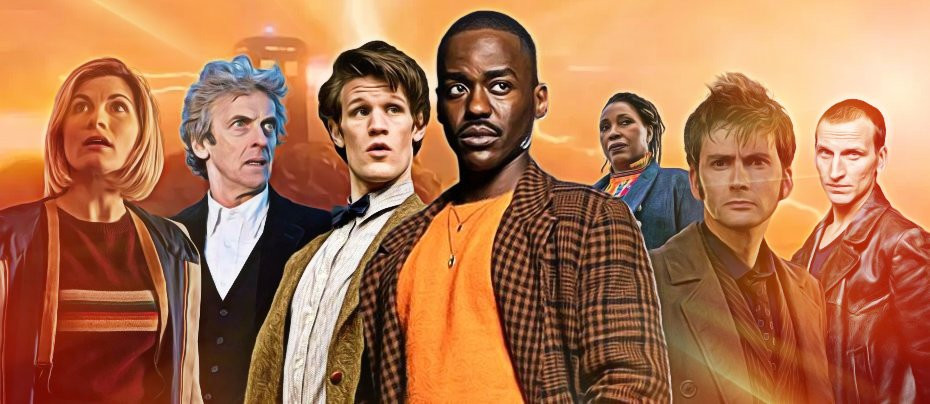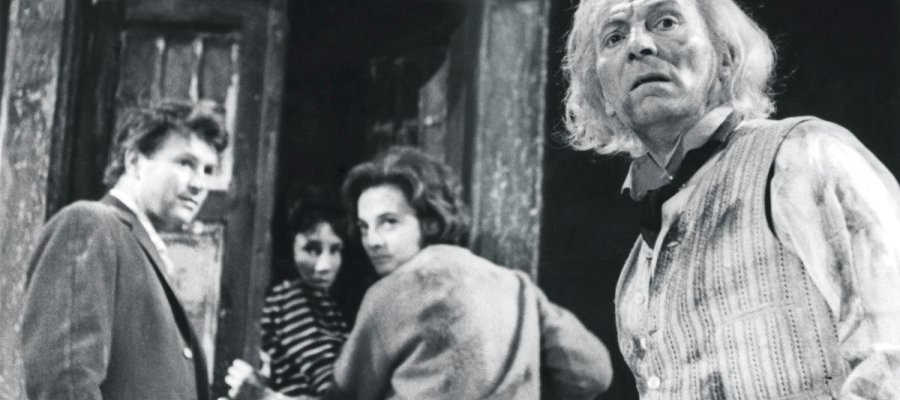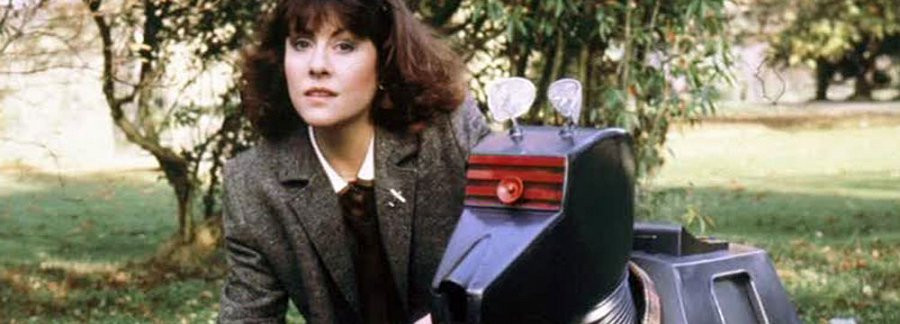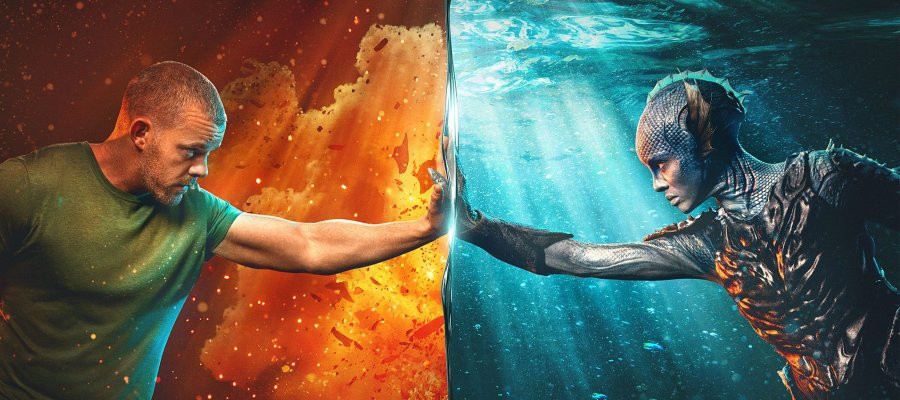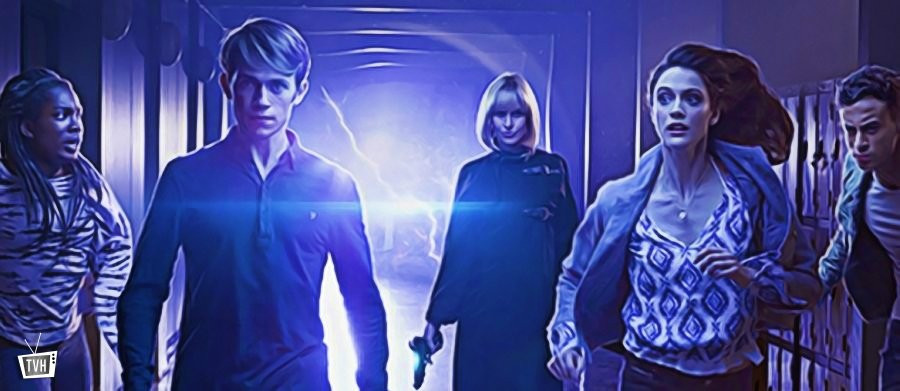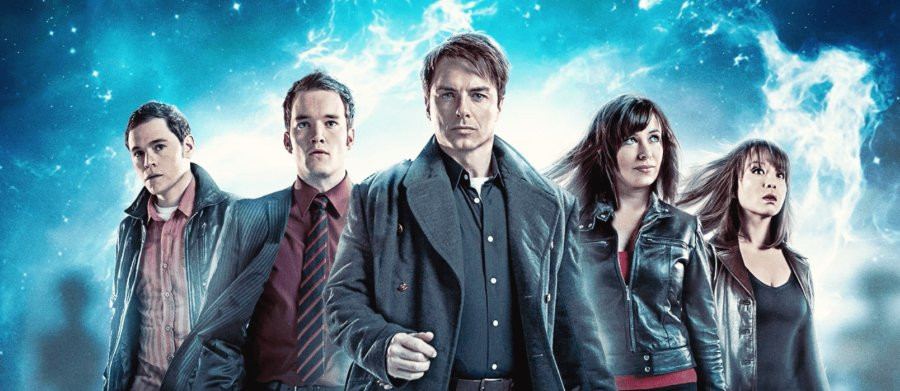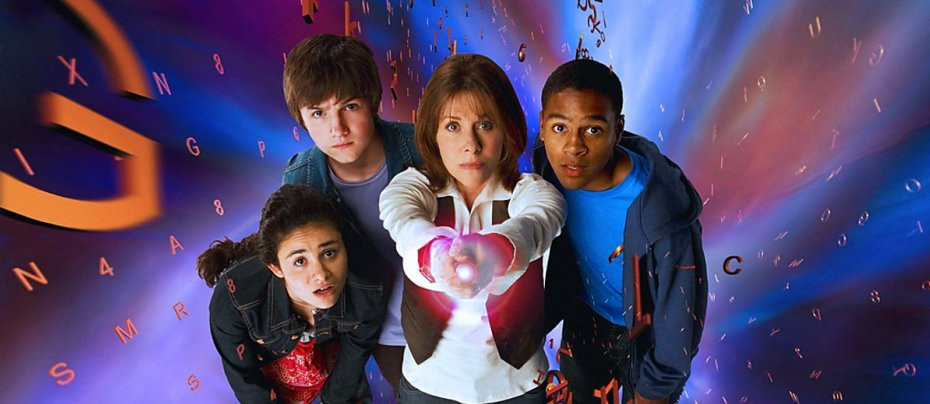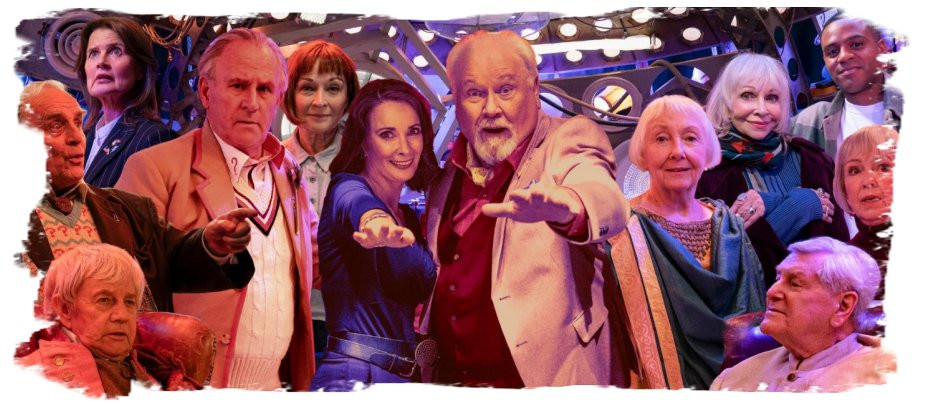Class Appraisal
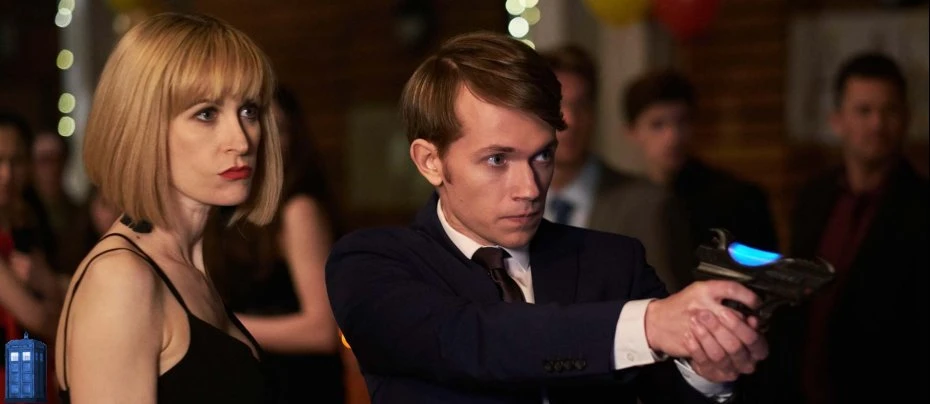
Class was the third official “New Who” spin-off TV series of Doctor Who and aired in 2016. The series is set in London, in and around Coal Hill School (which featured in the very first Doctor Who episode in 1963, in Remembrance of the Daleks (1985), the Day of the Doctor (2013) and frequently through Series 8 of Doctor Who). This series deals with important social and cultural issues, designed for young adults. The writer, Patrick Ness, is an incredible screenwriter, seen through his seamless and sensitive integration of teenage interactions, science fiction, adventure, and investigative drama. However, a simple Google search will tell you that not all reviews are as generous to Class as this introduction is. In fact, the Doctor Who community seems to be distinctly lacking in love for Class – in contrast to the well-loved spin-offs Torchwood and The Sarah Jane Adventures. Why? Rather than condemn Class to an early televisual grave, this article will discuss why Class failed and, importantly, how it should be viewed many years after its first broadcast and subsequent cancellation.
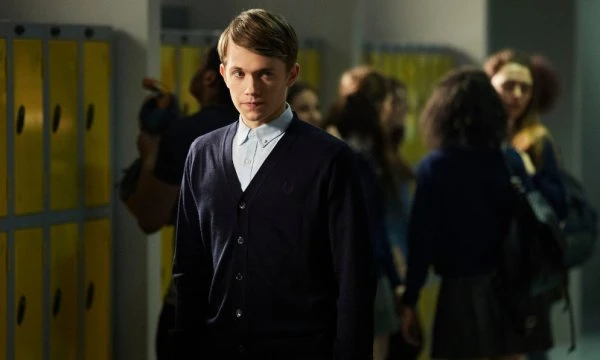
Class dealt with several issues ahead of its time. Within the last couple of years, attention has been placed on the plight refugees suffer at the hands of people traffickers, career criminals and pirates. Many writers have turned to discussing refugeeism in their programmes. The iconic Russell T. Davies himself focussed on refugee storylines in Doctor Who and Years and Years (2019). However, Class also dealt with these feelings.
Although Doctor Who dealt with refugees in episodes such as Utopia (TV 3.11), their storylines were not dwelt on. This contrasts with Class where refugeeism was introduced in the very first episode and was discussed right up until the final episode. How Charlie (Greg Austin), the last of his species, adjusts to a new society and culture is explored consistently through the series. Charlie’s Rhodian experience is reminiscent of the experience of many people who must adjust to a new culture and way of life, struggling to cope with what they have seen and finding it difficult to open up to new people. This is ahead of its time and, for sure, I would have liked to see how Charlie grew and learned to consolidate his experiences into something more manageable and less soul-consuming over time.
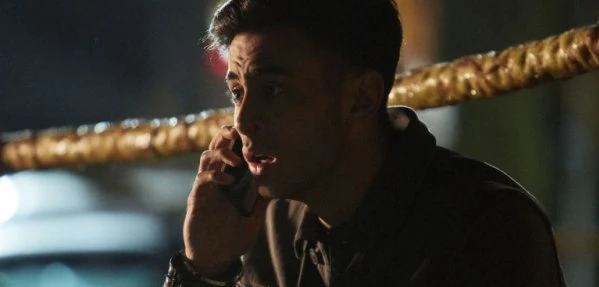
Mental health is discussed through the character of Ram (Fady Elsayed). Ram is presented as the epitome of “cool”, a character that every young adult knows in real-life – whether from school, university, college, or a workplace. He is young, energetic, attractive, ambitious, and incredibly popular. He is not necessarily likeable to begin with; he is a football jock who is incredibly self-obsessed. However, this soon changes in the series. Ram shows bravery in trying to expel the King of the Shadow Kin, Corakinus (Paul Marc Davis) (TV 1.1). He shows his vulnerable side to Tanya (Vivian Oparah) in The Coach with the Dragon Tattoo (TV 1.2) and Nightvisiting (TV 1.3) in particular. Their friendship evolves from a partnership of convenience (where Ram pays Tanya to help him with complex homework) to one where Ram is comfortable to cry in front of Tanya and open up to her, finding common ground with their shared griefs (Ram’s loss of Rachel and Tanya’s loss of her father). In doing so, Patrick Ness swiftly deconstructs the perception of the “football jock” as unemotional; the male archetype of strength and emotionlessness is gone.
In a world where we are more than aware of the struggles men and boys experience with their mental health, this depiction of someone appearing strong but actually being vulnerable is profound and would encourage any viewer of Class to check on their friends – apparently “strong” or not. Ram embodies the modern view that it is “OK for boys to cry”. This is further reinforced by just how wonderful Ram’s father (Aaron Neil) is to his son – a positive and non-toxic male role-model who refuses to give up on his son.
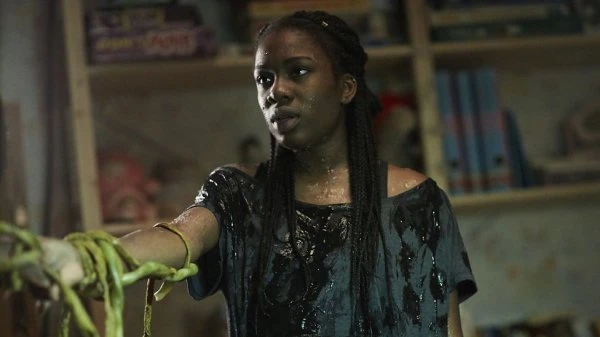
Finally, one more positive out of many, I would like to discuss Tanya’s role as a young black female in the series. In Detained (TV 1.6), the team take it in turns to pick up an asteroid containing an alien prisoner who thrives off its victims telling their deepest truths. Tanya feels left out of the group due to her younger age and makes several references to the colour of her skin as leading to her disadvantage. April (Sophie Hopkins) loses her temper with Tanya, saying that she should not “feel different” compared to Charlie (the refugee and mourner of his entire species), Matteusz (Jordan Renzo) (rejected by his family), Ram (who lost a leg in For Tonight We Night Die (TV 1.1) or, indeed, April (co-owner of a heart with an evil alien King).
Tanya, however, rejects this line of reasoning saying, “Don’t explain my own feelings to me, and don’t pretend like you know how this feels.” This is further expanded on by Tanya who scoffs that April has experienced “typical white-person happy ending” due to the recovery of her previously paralysed mother (Jackie Murray) through Shadow Kin powers. This is profound and, unfortunately, a sad reflection on 21st century living – that in general white people are privileged compared to their black counterparts. With the popularisation of the BLM movement in 2020 and 2021, Tanya’s comment that April, an average white girl, cannot “know how this feels” is a truly heartfelt comment and shows, many years before it became a mainstream opinion, that it is unacceptable to appropriate someone else’s story or invalidate their experience. Truly, Class was a forward-thinking show in this regard.
Overall, it is clear to see that Class has dealt with some truly difficult topics that other TV programmes would not dare engage with. Even the parent show, Doctor Who, may brush over these topics quickly whilst Class engages with them with confidence. Class should certainly be remembered alongside Torchwood and The Sarah Jane Adventures for introducing its target audiences to issues and affairs that deserved to be discussed.
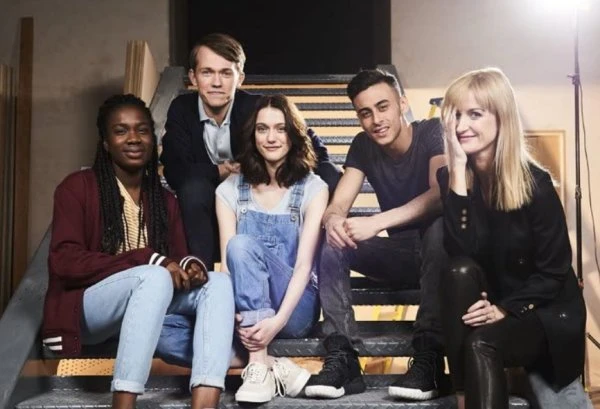
So – what went wrong? Why is Class all but forgotten? Why do people view it is Doctor Who’s dirty little secret (albeit unfairly)?
Well, firstly, the series premiered on BBC Three. This channel was not, and arguably is still not, the right place to premier a brand-new spin-off TV show. CBBC worked in showing The Sarah Jane Adventures, hitting its target audience. BBC Three didn't target young adults as part of its viewership. The BBC arguably agrees with this interpretation. BBC Three was moved to be an online-only channel in 2016. Although Torchwood premiered on BBC Three (whilst it was still a terrestrial channel, breaking previous BBC Three viewership records), it was then swiftly moved to BBC Two for series two due to its success and then even BBC One for the hit series The Children of Earth . BBC Three has always been viewed as a niche channel. Further, as an avid Doctor Who fan, I cannot believe the fact even I did not even know about Class until 2018 and did not see it advertised anywhere in 2016. I found out through an advert on Netflix! Advertising let Class down and the choice of premier channel certainly did not give any advantages to this series.
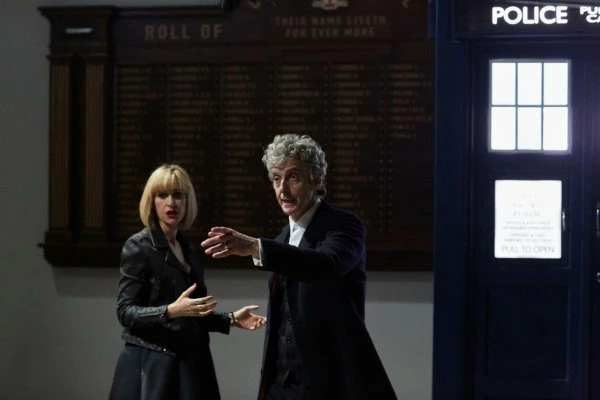
In addition, one of the biggest issues with the construction of Class is the fact there is no root character from the parent show to draw viewership to the series. Torchwood was very much Captain Jack Harkness’ (John Barrowman) show and drew viewership because of his popularity. Similarly, children, teenagers, and adults were drawn to, and continue to be drawn to, Elisabeth Sladen’s incredible portrayal of Sarah Jane Smith in The Sarah Jane Adventures. These much-loved characters and actors grounded their respective shows and drew viewership.
This enabled the viewer to latch onto their fondness and familiarity for the character and grow to like the supporting characters in their own time. Slowly, but surely, the characters of Gwen (Eve Myles), Ianto (Gareth David-Lloyd), Owen (Burn Gorman), and Tosh (Naoko Mori) in Torchwood and Maria (Yasmin Paige), Luke (Tommy Knight), Clyde (Daniel Anthony), Rani (Anjli Mohindra), and Sky (Sinead Michael) in The Sarah Jane Adventures have become just as loved as Cpt. Jack Harkness and Sarah Jane Smith. Class did not have that. Apart from a fleeting appearance from the Twelfth Doctor in Tonight We Might Die, there were no familiar characters to latch on to. This adversely impacted the perception of Class and the characters within it.
In addition, each character has their demons. Miss Quill (Katherine Kelly), Charlie, April, Tanya, and Ram are frequently unlikeable at points, whether this is entitlement, selfishness, being argumentative, or just cocky. This is not a flaw. We see these same demons in Torchwood with Gwen Cooper’s flirtatiousness and willingness to cheat on long-suffering boyfriend, Rhys Williams (Kai Owen). We see this with Dr Owen Harper, sometimes overtly sexual to colleagues and women in bars. We see it with Rani Chandra in The Mad Woman in the Attic (TV 3.3 and 3.4) who not only rejects her friends in the story but treats them appallingly in the process. We see it with Clyde Langer who, across the five-series of The Sarah Jane Adventures mellows in nature as, during the earlier series, he can be a bit of a bully. However, they are all grounded by either Jack Harkness or Sarah Jane and have a clear character arc where they manage to shed their poorer character traits and grow as people. We do not get to see this in Class. Right down to the end, the characters remain somewhat unlikeable and there is a distinct feeling of frustration that no-one seems to be working as a team – even in the last episode, The Lost (TV. 1.8). Perhaps, if the characters were allowed to grow in through a second series, we would have been able to latch onto the team and grow to love them – “warts and all” as they say. But Class certainly suffered from not having that grounding character in the same way Torchwood and The Sarah Jane Adventures had.
Essentially – Patrick Ness is an incredible writer. The write-up for series two is readily available online and looks incredible, just look at those cliff-hangers Ness leaves us with at the end of series one! The concept of Class has also been proven to be excellent – seen through Big Finish Production’s success with Class Volumes 1-4. They continue to discuss the complex lives of the teenagers represented: dealing with mental health, fitting in, and identity. Characters from the parent show work well within Class, seen through the inclusion of Ace (Sophie Aldred) in the story In Remembrance (Big Finish Productions Class, Volume 2, Story 3) – her connection with Miss Quill is something I would have liked to have seen built on in the main TV should it have continued. After all, it has been proven that Ace is an enduringly popular character and has garnered much excitement with her return in Doctor Who’s BBC Centenary episode in 2022. Perhaps she should have been the root grounding character right from the first episode in series one, left by the Doctor to help mentor and guide the team? Surely viewership would have been higher. After all, there is much talk in the Doctor Who community that an Ace spin-off during Russell T. Davies second era would go down a treat!
There are moments of simultaneous beauty, excitement, humour, intimacy and drama in Class and those golden moments make you genuinely love the series. I like to think we genuinely care about the characters and want to know where things are going next by The Lost. We wonder: is Quill softening in her new-found motherhood? Will Charlie come to terms with his actions at the end of The Lost ? What about April’s heart/body? Will Ram recover from his trauma? Will Tanya find her true self? How are the Weeping Angels involved in the enigmatically named “Arrival”?
I mourn for Class and what could have been. A forward thinking and incredibly entertaining show just begging for Series 2 to be produced and unpacked. After all, not many people remember the early episodes of Torchwood or The Sarah Jane Adventures Pilot Episode (The Invasion of the Bane,) as being the heights of television creativity and success, yet their later series are remembered with nostalgia and love. That could have been Class. I hope, one day, it will be Class.
Written by Joshua Nicholson


